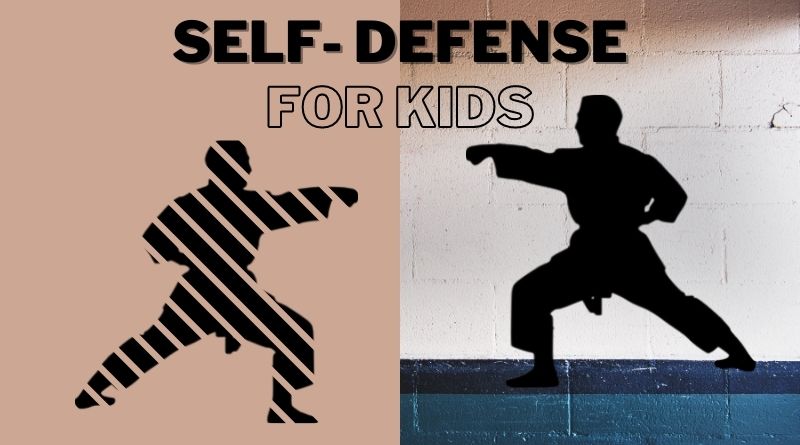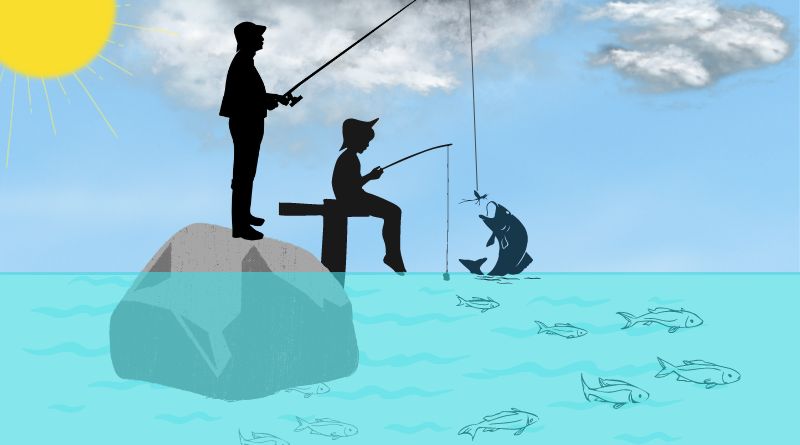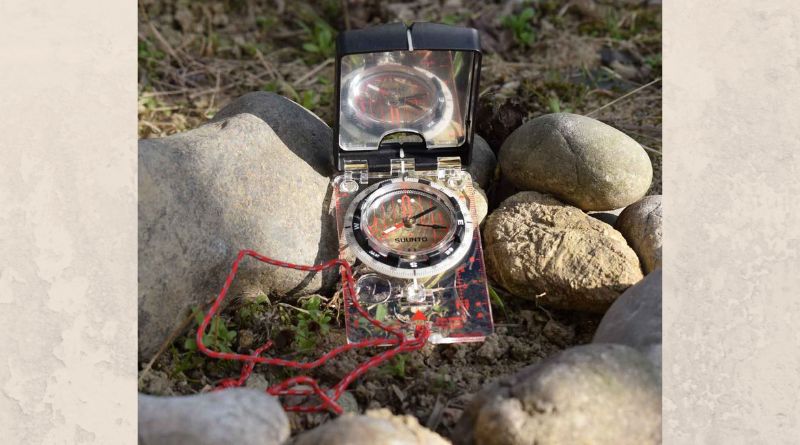Prepping Our Kids
Prepping Our Kids For An Emergency
Once a disaster strikes, the First thing we think of is our family. Parents will think of their children and children think of their parents. We want the best for our families, we want them to be OK. And one of the best ways to do this is to prepare our kids. Prepping Our kids has a few ideas on emergency preparedness for children.
Protecting Our Kids
Everyone should be prepared to the best of their abilities including kids. Prepping our kids is not easy, parents want to protect and shelter their children. Which is a natural reflex. But not the best way to protect your children. Sheltering them from all the realities of life will leave them unprepared. The best way to protect children is by teaching them to be calm in a survival situation, to be situationally aware, and to have the skills to survive the emergency. The more capable our children are, the better it is for them.
Children In Past
In the past much more was expected of our kids. Children helped around the house, farm, or ranch. They were trusted to do chores that were essential to the families’ survival. Pioneers taught their children basic survival skills at an extremely young age. This benefited not only the family unit. But also the child as it was skills, kids needed to know to survive.
Present Day Kids
Most Kids nowadays are woefully unprepared for any survival situation. I have seen kids in my neighborhood in their teens who have never used a knife other than to butter bread, have never started a campfire, chopped wood, or even cooked a meal for themselves.
How To Prepare Your Family
Prepping for a family is not quite the same as solo prepping, when prepping for kids it gets even more complicated. Preparing your family requires the cooperation and participation of every member of the family, regardless of age. To keep them safe, sit them down and discuss openly what threats are out there and how best to prepare for them. Stress the importance of preparedness, and how realistic planning is just like buying insurance. Depending on how old your child is of course.
Involve Your Kids
Get the kids involved in the preparations, take them grocery shopping, explain why you are buying the items, and tell them to find long shelf life dry goods, canned goods, pasta, rice, etc. Give them a checklist and ask them what they are missing in their Bug-out Bags. Give them responsibilities such as being in charge of where the spare candles are in case of a blackout. Show children the water and food storage areas at home. Ask them to remind you if something looks like it is running low. It makes them feel like they are an essential cog in the machine.
Have An Emergency Plan
What happens if during a disaster family members are in different locations? Would everyone know how to get in touch with each other? Do your kids have your phone numbers memorized? Is there a meeting place? One of the most important things we need to be prepping kids for is the scenario that they may not be with their families at the time of the emergency.
Prepping To Bug In With Your Kids
Family members should be prepared to bug in, and the hardships that entail. Bugging in is not a vacation, with water, food and supplies limited. Rationing is going to be essential. Have a bug in weekend. Get the whole family acclimated to bugging in. Dry runs are great for Prepping kids to a bugging in scenario. Another great benefit of a bug in weekend is that you will notice the little things that may have been missed.
Bug Out Bag
Every member of the family should have a Bug out bag and be taught how to use its contents. For children, keep the weight low, 10 to 15 percent of their bodyweight (unless your kid happens to be extremely fit).
Memorize Phone Numbers
Have a means of communication, and make sure phone numbers are memorized. A cell phone may be lost, broken, stolen, or run out of battery. If you had to use a pay phone or borrow someone’s phone, have you or your kids memorized a single family member’s phone number to call? Now, I know there is a lot of controversy about kids and phones, how old should they be before they get their first cell phone. This should not be an issue. Soon as possible is my recommendation.
Dumb Phones
Just make sure to buy the child a dumb phone as the first cell phone. That way they will have a means to communicate with you in an emergency and without the distraction of a smart phone. Think of it as prepping your kids for an emergency with a means of communication as well as preparing them for the day they get upgraded to a smart phone.
Dead Drop Location
Have a dead drop location assigned to leave messages. Somewhere central and easy to reach.
BOL (Bug Out Location)
Make sure that all family members know how to get to the bug-out location, by car or on foot if necessary.
Teach Your Children Survival Skills
Start teaching survival skills as soon as possible. Play games that are a learning experience. Build a fort in the garden using natural materials (and that would be a survival shelter), play hide and seek at night (teaches a child how to hide and keep quiet in case of a home invasion).
Teach Children Not To Panic
Panic is the worst thing a child or anyone can do in any survival situation. The best way to prevent panic is to instill confidence in the child and run drills on what to do in a survival situation. Eg: What to do if a fire broke out, who to call in an emergency, etc.
Skills Every Child Should Know And How to Teach Them
Kids learn the fastest and easiest when it is fun for them, young children and “sometimes older ones as well”. Make the learning experience fun like a game, after all, kids love games. This will encourage the child to learn an essential survival skill easily.
Teach Children Responsibility
Give your kids a little emergency survival kit, something small with the basics to teach them responsibility and teach them to be discrete. Tell your kids not to advertise that they carry a survival kit. And to look after it.
Throw in items that your kids know how to use, and make sure they understand these are not toys. Eg: Mylar blanket, Boo Boo kit, small button compass, map, emergency whistle, energy bars, small LED torchlight, and whatever you think they know how to use. If well packed and organized, a kit like this can be relatively compact.
Survival Games For Children
Camping
Camping teaches a slew of survival skills, everything from how to use a knife to tying knots. If camping trips in the outback are out of the question. Have a backyard camping weekend, and try to make it as realistic as possible.
How To Use A Knife
Feather sticking, carve a “Try Stick”, and carve a spoon. Teach kids that a knife is a tool and not a toy. There is no such thing as a kid friendly knife, but there are certain models designed for younger users such as the Opinel Outdoor Junior No 7 and Morakniv Scout. Ultimately this is going to be up to the parents to decide, whether they want their child to start out with a beginner model or just a good old pocket knife like the Classic Buck Folder or a Swiss Army Knife like the Tinker.
Knives are dangerous, close supervision is going to be essential.
How To Start A Fire
Let the kids start a fire using a lighter, than a Ferro rod, and slowly work on increasing the difficulty and making it more challenging.
How To Tie Knots
Start with simple knots, like the essential survival knots everyone needs to know.
Shelter Building
Camping shelters can be extended beyond using a tent and sleeping bags. Advanced camping will involve make-shift shelters, from tarpaulins and eventually from natural materials.
If backyard camping, limit the children’s access to the home as much as possible.
Situational Awareness
An essential survival skill to have is situational awareness, especially for children, being able to detect potential threats and how to react is a skill that NEEDS to be taught. In today’s society, people are engrossed with technology and their devices. Constantly on their phones or tablets, totally unaware of their surroundings. The “I spy game” is a great way to teach kids situational awareness.
The I Spy Game
Take the kids out and play a game where they have to notice as much as possible about their surroundings, take them out for a treat, and when there, ask them to point out all the exits, how many people are there, what they are wearing, etc. click on the link for more situational awareness training games.
Self-Defense For Kids
Sign kids up for a self-defense class, something like Krav Maga is good. It will have the benefit of building the Childs confidence and keeping them fit.

Water Safety Rules
In a survival situation, water may be limited to what is stored or sourced and will be a precious commodity.
Water conservation and water safety are essential. Turn the water off for a day. And teach your kids how to conserve water, how to purify water, and basic hygiene with limited water.
Family Cook Day
Cooking is a survival skill and everyone should know at least the basics of what is safe to eat, and how to prep and cook food. Having kids participate in family cook day not only teaches them how to cook, but also makes them appreciate how much work goes into preparing a meal for a family.
How to Open A Can
Using different types of manual can openers. From the kitchen-styled twist can openers to those attached on a multi-tool like a Leatherman or SAK. It’s something we take for granted as adults. But for children, something as simple as opening a can with a Leatherman can be a challenge.
How To Make Sure The Contents Of A Can Are Safe To Eat
Teach kids that bulging, rusted, or seriously dented cans are potentially poisonous and unsafe to eat.
Teach Kids How To Find Food
In the days of yore, this was a basic skill that most people including kids knew to some extent or other. Teaching these age-old skills is an essential part of prepping.
Teaching Kids To Fish
Fishing is one of the easiest ways to get protein in the wild. And it gives a great opportunity to follow up with how to clean a fish, cook a fish and of course, the reward. Eat the fish.

Teaching Kids To Hunt
It may be wise to limit hunting to slightly older kids. But it is an age-old bonding ritual between parent and child. And a great survival skill to have.
Teaching Kids To Forage
Take the kids out for a walk in the wilds and forage for wild greens, it is amazing how many edibles are out there. But be very strict about teaching your child to always bring foraged food home for you to approve before consumption.
What To Do When Separated
Do your kids know what to do if separated from the family? If they get lost, or if something happens. Do they know how to call home, find their way home, or contact a family member or friend?
How To Contact Family or Friends
Make your kids memorize family members’ phone numbers, addresses, and full names.
How To Use A Compass
Kids should be taught to use a compass and basic navigation skills. Take them for walks around town or the neighborhood and ask them to lead the way home.

First Aid
Learning first aid is a great way to instill confidence in the child, it also helps kids keep calm if they are injured or see an injured person. Knowing first aid means that the child will know that injuries are often not as serious as they first appear.
How To Swim
Erm… I think this is self-explanatory, everyone should know how to swim.
How To Cycle
Kind of surprising how many people don’t know how to cycle, cycling is the perfect form of transportation other than walking. It gets you there fast, is doable on and off-road, and is easy to learn.
Tech Free Day
Have a tech-free day, turn off the power, and have a family weekend. Pretty much doing dry runs if the power ever goes out for an extended period. Don’t cheat. make sure all the power is off, including phones and battery operated devices. Just keep a radio on to keep in touch with the world.
Conclusion:
Ok, I get that many people are going to think this is a little bit much, but people need to understand that in the not-too-distant past, much of this was common knowledge for adults and children.
I got my first pocket knife when I was 4 years old. A little folder that I was taught how to open and close safely. And how to cut things without cutting myself. I learned all the skills listed above before I hit my teens.
At the time, my father didn’t think he was prepping his kids, he thought of it as essential life skills, It was just something we did as a family, it was fun and interesting to learn.
I was confident enough in what I learned that I could hike kilometers into the jungle and navigate my way home blazing my trail as I went.
As an adult, many of these skills came in handy. We were in Malaysia during tropical storms so strong that it took 5 people to hold a door closed. We were also there during the 2004 Tsunami. Our home was only 150 meters away from the beach. And in the 2021 Zagreb earthquake where our home was so badly damaged it was classified as unsafe to enter.